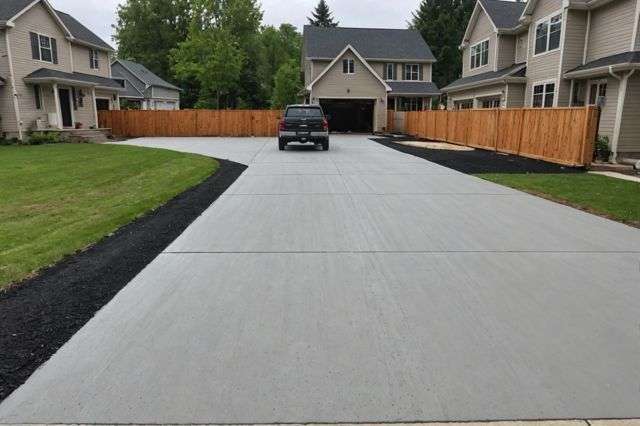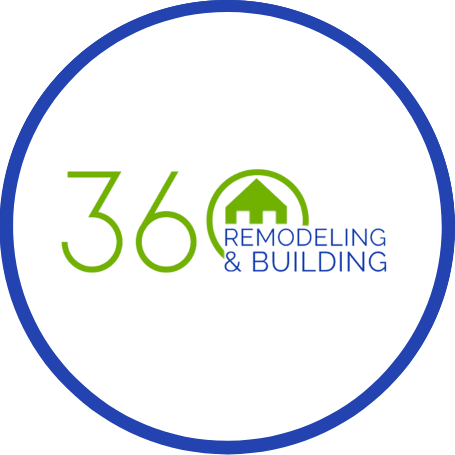
Granada Hills Concrete Driveway Repair

Granada Hills concrete driveways often suffer from cracks, potholes, and surface scaling due to weather and ground movement. Homeowners should choose repair methods like patching or resurfacing based on the severity of the damage, and consider professional help for complex issues.
Understanding Granada Hills Concrete Driveway Damage
Concrete driveways in Granada Hills are susceptible to various types of damage. Here are some of the most common:
- Cracks: These are usual in concrete driveways. Fluctuating weather conditions cause the concrete to expand and contract. Over time, this back-and-forth leads to fissures or cracks.
- Potholes: Ground movement is another critical factor. As soil shifts beneath the concrete, it can cause depressions, eventually leading to potholes.
- Surface scaling: Exposure to freezing temperatures can cause surface scaling. It’s a condition where the concrete surface peels, flakes off, or gets pitted. Water, freezing and thawing all play a part in this deterioration process.
Understanding these issues’ root causes can guide homeowners in Granada Hills when repairing their concrete driveways. Properly addressing these problems ensures a long-lasting and aesthetically pleasing driveway.

Choosing the Right Repair Method for Your Driveway
Repairing your concrete driveway depends on the extent of the damage. Various methods can provide effective solutions:
- Patching cracks is a commonly used technique. This method is suitable for small, isolated damages. You can fill these cracks using a concrete patching compound.
- Resurfacing is another viable option when the surface layer of the driveway has extensive, but shallow damages. A thin layer of a concrete mix is spread over the existing driveway, giving it a new, smooth surface.
Remember, the repair method chosen should directly correspond to the severity of the driveway damage. Working with a professional contractor can ensure an effective and lasting repair solution.
We advise against DIY repairs for deep, wide cracks or any structural damage as these issues involve complex repairs. A trained contractor can assess the damages and perform necessary repairs, ensuring safety and durability.
In conclusion, patching cracks is an ideal solution for minor damages. For more extensive damages, resurfacing might be necessary. A professional evaluation is vital in deciding the right repair method.
For more insights on driveway paving options, check out our Top 3 Brick Paving Patterns for Driveways.
Step-by-Step Guide to Repairing Your Driveway
When encountering issues like cracks and holes in a concrete driveway, take these actions to repair the problem:
- Start with preparing the damaged area. Remove loose debris and clean the area thoroughly. Dirt and debris can hinder the repair materials from adhering effectively.
- Assess the damage. The right repair approach depends on the extent and depth of the driveway damage. Surface-level cracks might just need a filler material, while deeper cracks or holes may need an epoxy repair product.
- Get the right materials. A concrete patching compound can handle minor repairs, while concrete resurfacer can tackle larger cracks and pitting. Make sure to follow the manufacturer’s instructions for best results.
- Apply the materials. After mixing the repair substance, use a trowel to spread it into the damaged area. Be sure to compact it into the crack or hole and level it off with the surrounding surface.
- Allow the repaired area to cure. Avoid using the driveway until the repair material has fully hardened. The curing process typically takes 24-48 hours, but consult the product instructions to be sure.
This step-by-step guideline helps ensure a durable fix for your concrete driveway, maintaining the attractive and functional feature of your property. Make repairs at the first signs of damage to prevent more extensive—and expensive—problems. In case of major damage, consider bringing in professional help from a experienced company like 360 Remodeling and Building.
For more detailed information on maintaining your pavers, you might find our article on Effective Methods for Securing Joint Sand in Paver Installations helpful.

Preventive Measures and Maintenance Tips
For the longevity and aesthetic quality of your concrete driveway, certain preventive methods play a crucial role. Here are some pointers:
- Regular Inspection: Spot minor damages before they turn major. Look for cracks and address them immediately.
- Sealing: Applying a good quality sealant prevents water absorption that can lead to cracks and potholes. Redo the sealing every few years.
- Cleaning: Avoid allowing stains to settle. Clean up oil or chemical spills as soon as possible to prevent them from seeping into the concrete and causing damage.
Remember, every driveway will age with time but sticking to a routine of regular inspections, timely sealing, and proper cleaning practices can significantly prolong its lifespan.
For comprehensive driveway maintenance and repair solutions, do not forget to check out the extensive services we offer at 360 Remodeling and Building.
For those considering alternative paving options, our article on Comparing Paver Types: Permeable vs. Concrete Options could be of interest.

Sources:
- Cement.org – Types and Causes of Concrete Deterioration
- The Constructor – Major Causes of Concrete Damage
FAQ
What are the common types of damage to concrete driveways in Granada Hills?
Concrete driveways in Granada Hills often suffer from cracks, potholes, and surface scaling. These issues result from fluctuating weather conditions, ground movement, and exposure to freezing temperatures, which cause the concrete to expand, contract, and deteriorate over time.
How should I repair cracks in my concrete driveway?
For small, isolated cracks, patching with a concrete patching compound is effective. This method fills the cracks and prevents them from expanding. It is crucial to clean the area thoroughly before applying the compound to ensure proper adhesion.
What is the best approach for more extensive driveway damage?
Resurfacing is recommended for driveways with extensive but shallow damage. This method involves applying a thin layer of concrete mix over the existing surface, providing a new, smooth finish. It’s important to assess the extent of the damage to choose the right repair method.
Can I repair my concrete driveway myself?
While DIY repairs are possible for minor issues like small cracks, deep or wide cracks and structural damages should be handled by professionals. Complex repairs require expertise to ensure safety, durability, and compliance with standards.
What maintenance practices can prolong the life of a concrete driveway?
Regular inspections to catch and address minor damages early, sealing the surface to prevent water absorption, and cleaning up spills promptly are key practices. Regular sealing and cleaning not only maintain the driveway’s functionality but also its aesthetic appeal.
When should I call a professional for driveway repair?
You should consider professional help when dealing with deep, wide cracks, structural issues, or when you are unsure about the appropriate repair method. Professionals can provide a thorough assessment and carry out repairs that ensure the longevity and safety of your driveway.
